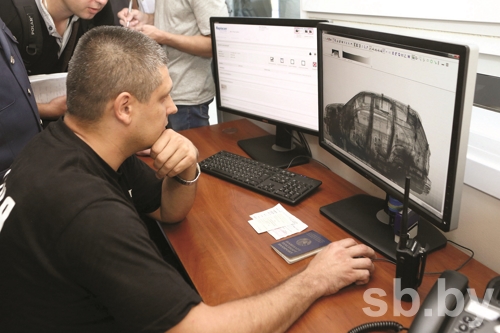
With this in mind, on meeting the Chairman of the State Customs Committee — Yuri Senko, the President said, “I would like to be fully informed about the services that we provide to the Russian Federation (thanks to our customs services, Russia protects its interests in the west, and it relies on the customs bodies of Belarus for this) because I want to be fully briefed for the discussion with the leadership of the Russian Federation.” Mr. Senko assured the Head of State that his Committee fulfils its functions relating to the control over transportation of sanctioned goods — virtually protecting our partners from illegal imports. He also reported on the Committee’s work this year and the activity will be analysed in detail at Presidential level in early 2017.
The State Customs Committee suggests minimising penalties against private companies. The relevant ideas were also discussed during the meeting. “At present, commercial entities who find they have failed to pay some miniscule customs duties — are expected to face administrative charges. We suggest dropping administrative charges if the economic operator finds the lapse itself and pays up.” The agencies concerned are now actively debating the idea. “I think the initiative will be legislation soon,” Mr. Senko added.
The same day, the President held a working meeting with the Chairman of the State Military-Industrial Committee, Sergey Gurulev, to ask him in detail how matters are progressing in the sphere. The projects under realisation were discussed and the two sides also focused on the plans of organisations and companies of the State Military-Industrial Committee’s structure. Special attention was paid to the economic situation of the military-industrial complex, with the President placing some direct orders on issues of its further development.
By Alexander Pimenov
Partners to continue co-operation
As the Head of Unit at the Directorate-General for Neighbourhood and Enlargement Negotiations of the European Commission — Vassilis Maragos — said at the Broadening the Horizons: Investment, Finance, Development Forum, the European Union is ready to help Belarus attract foreign investment
Belarus’ main advantages include the country’s highly-educated people, skilled labour force, competitive products, rapidly developing IT sector, rich traditions in mechanical engineering and its processing industry. The EC representative stressed that the reforms made by the Belarusian Government helped improve the situation in the private sector.
At present, Belarus is attaching more attention to the development of small and medium-sized enterprises. This also sends a positive signal. The EU is developing co-operation with Belarus on a number of projects in energy, SMEs promotion, and IT. “We are facing new challenges and can address them together. The experience of West European countries can be a great example for Belarus, and we are ready to co-operate with you. Thus, we will be able to reach bigger results on the back of common goals, including in ensuring security worldwide,” he stressed.
Mr. Maragos said that preparations for a number of partner agreements are underway. “They envisage financing to the tune of 30m Euros. We will continue stepping up these efforts. This will include the management of migration flows, and small to medium-sized business development,” he explained.
In addition, Belarus has gained an opportunity to attract funds from the European Investment Bank. “We will work with the bank, the Government of Belarus and local authorities to identify real investment projects that can be supported. We are also considering the possibility of providing grants through the European Neighbourhood fund,” the expert said.
By Vladimir Velikhov











